
Pharmaceutical companies and contract manufacturing organizations report lack of readiness for the November 2018 US Drug Supply Chain Security Act serialization deadline.
Agnes Shanley is senior editor of BioPharm International.

Pharmaceutical companies and contract manufacturing organizations report lack of readiness for the November 2018 US Drug Supply Chain Security Act serialization deadline.

A review of 2017 advancements from the Open-SCS working group with Charlie Gifford, group technical director.
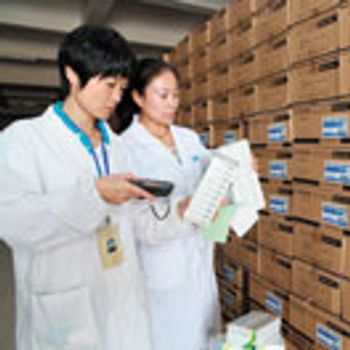
Open standards based on GAMP and GS1 will soon be released and more companies are moving beyond basic compliance.

A technology roadmap aims to drive and consolidate improvements in a process that has remained unchanged for more than 70 years.

Despite GxP and data-management challenges, pharma is moving toward new models for clinical trial logistics.

Internet of Things, advanced analytics, and blockchain solutions such as smart contracts promise to give manufacturers more control over products and supply chains.
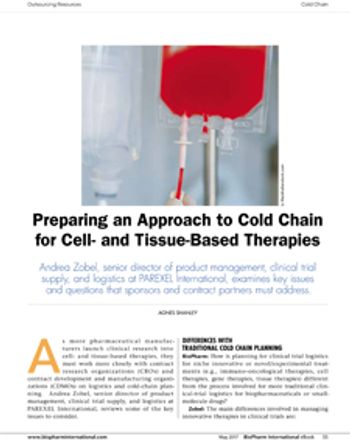
Andrea Zobel, senior director of product management, clinical trial supply, and logistics at PAREXEL International, examines key issues and questions that sponsors and contract partners must address.
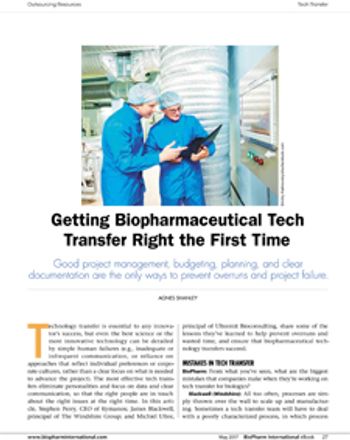
Good project management, budgeting, planning, and clear documentation are the only ways to prevent overruns and project failure.

Continuous downstream bioprocessing is proving its worth, but connecting different operations and integrating upstream remains a challenge.

As regulators strive for balance in cGMPs for cell, gene, and tissue therapies, risk-management principles must guide decisions involving process media and additives.

Johnson & Johnson Supply Chain (JJSC) and the distributor AmerisourceBergen launched a four-week pilot program to test GS1’s EPCIS standards and to see how effectively data could be transferred between the two partners.

The author discusses the results from TraceLink and Actionable Research's Global Drug Supply, Safety and Traceability Report.

Longer packouts are becoming the rule, as logistics service providers and sponsors gain experience planning logistics for clinical trials involving cell and gene therapies.

Primary packaging and container design reflects a move to patient-friendly formulations and delivery systems.

Vendor selection and materials testing are complex enough, but in today’s volatile environment, risk mapping and monitoring are also crucial.

The time and resources required to finalize post-approval changes may be preventing manufacturers from modernizing facilities, or even scouting for new technology.

Airlines, airports, freight forwarders, and other cold-chain partners are taking a crash course in pharma cGMPs.
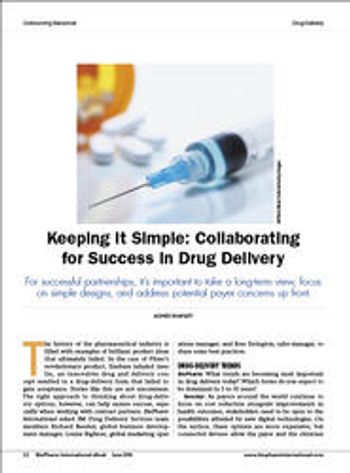
For successful drug delivery partnerships, it’s important to take a long-term view, focus on simple designs, and address potential payer concerns up front.
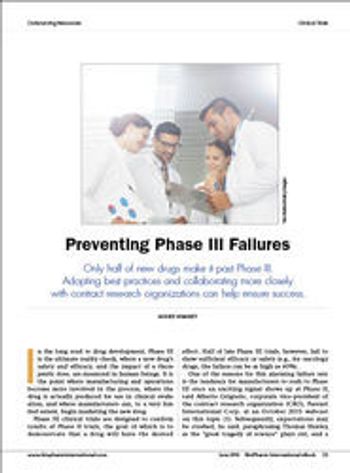
Adopting best practices and collaborating more closely with contract research organizations can help drugs get past Phase III.

Risk management takes center stage, and new mobile apps are being developed to help assess global risks in real time.

Contract biopharmaceutical manufacturing has been growing steadily and is expected to reach $4.1 billion by 2019.

At DCAT 2016, IMS Health economist Graham Lewis noted that pharma is reliving trends last seen in the 1980s. Despite value-based medicine, he said, the blockbuster model is alive and well, and biopharm's presence continues to grow.

Real-time GPS technology, better IT connections, and more conservative, controlled shipping temperatures are improving the shipment of sensitive pharmaceuticals.

In the U.K., a new four-year initiative has been launched to streamline drug development and manufacturing by leveraging better computer-based process modeling and simulation.
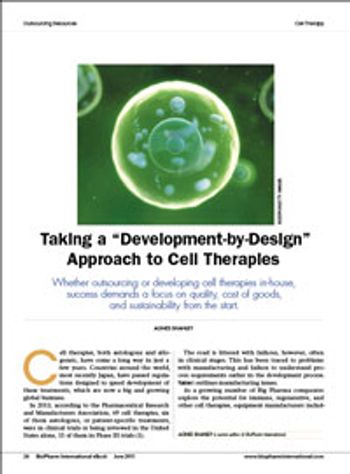
Whether outsourcing or developing cell therapies in-house, success demands a focus on quality, cost of goods, and sustainability from the start.

Sandoz announces their version of filgrastim, a follow-on biologic for the treatment of neutropenia, is as safe and effective as Amgen's Neupogen.

An index from the Access to Medicine Foundation ranks GSK as most effective in making products accessible.